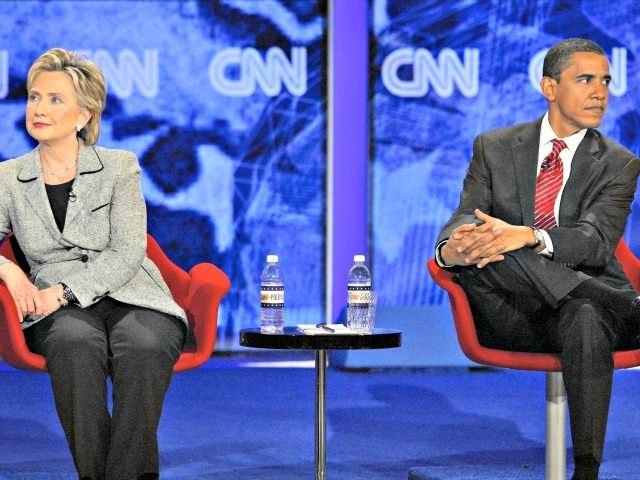With less than a week until the Iowa Caucus, Hillary Clinton is on the edge of becoming the underdog in her race for the Democrat nomination. Supporters of Hillary counter her recent polling dips in Iowa and New Hampshire with her still strong lead in national polls, arguing she is still the presumptive frontrunner for the Democrat nomination. That argument is ignorant of history and politics.
It bears repeating that we do not elect Presidents, especially party nominees, in a national vote. It is a state-by-state contest where national polling is, at best, a lagging indicator of a campaign’s trajectory. At worst, though, national polling is simply a name recognition test for voters who are paying little attention to the current state of the race.
When Hillary Clinton came in third in the Iowa Caucus in 2008, national polling had her leading Barack Obama and John Edwards by 15 points. This is the same margin she has today in national polls against Bernie Sanders.
The week before the Iowa Caucus, Clinton was leading her two challengers by 20-29 points in national polls. Based on those national polls, she had a stronger claim on the Democrat nomination then than she has today. In 2008, she led two credible challengers by double the amount she currently leads a single, not especially credible, challenger.
Hillary Clinton continued to lead national polling as the primary contest continued through Iowa and into New Hampshire, South Carolina, and Nevada. She won two of those contests, in closely fought battles in New Hampshire and Nevada. Still, at the end of that month, her national lead had evaporated and, except for an occasional poll throughout the long nominating contest, she never reclaimed the lead in national polls.
In hindsight, her defeat to Barack Obama for the nomination looks obvious after her loss in the Iowa Caucus. It did not appear that way at the time. A chief reason that, even after her Iowa defeat, she was still viewed as the Democrat favorite was her strong lead in national polls.
Once voting begins, though, national polling is meaningless. That’s not quite right. Rather, it simply becomes another point of reference that is also impacted by state voting. Again, its a lagging indicator.
Throughout January 2008, when the first four states voted, Hillary lost more than 20 points in national polling. Polling in New Hampshire immediately flipped in the days following the Iowa Caucus. The Granite State went from a 10-point margin for Hillary to a 10-point margin for Obama. Hillary managed to campaign her way back to a razor-thin victory in New Hampshire, but her defeat in Iowa had a dramatic impact on the race there.
The same was true in South Carolina and Nevada, the other two states to vote in January 2008. In the immediate wake of the Iowa vote, South Carolina moved from a 2-point Clinton lead to a 10-point Obama lead. In Nevada, too, Hillary lost her 20+ point lead and ended up clinging to a narrow 5 point victory.
Hillary’s position today is far more tenuous than it was in 2008, though. She is very likely to lose the two opening contests, rather than achieve a split-decision. Although some recent polling shows her with a slim lead in Iowa, polling also had her with a slim lead ahead of the caucus in 2008. Polling is notoriously difficult for the Iowa Caucus.
Prior to her loss in Iowa, Clinton held a strong lead in all the other early voting states, including New Hampshire. Sanders already has a large polling advantage in New Hampshire. A victory in Iowa, or even a very close second place finish, will likely even expand his lead.
In South Carolina, a state often mentioned as a “firewall” for Clinton this year, her lead over Sanders has already been cut in half, even before Iowa and New Hampshire vote. In 2008, there was no real shift in South Carolina polling until after those states had voted. A twin loss for Hillary in those states will likely erase the advantage she has in South Carolina.
All of this is a long way of saying that, based on history, Hillary Clinton is in very serious trouble in her campaign for the Democrat nomination. In many ways, she is in worse shape politically today than she was on the eve of voting in 2008.
National polls matter, up until the point that they don’t. That point is usually when the actual voting in the early states begins.
There is obviously a lesson here for the current Republican contest as well. In 1992, Bill Clinton lost badly in the Iowa Caucus and also lost in New Hampshire. In fact, he lost all of the early voting contests. Bill Clinton didn’t win a primary until Georgia voted on March 3rd, a month after actual voting began. He was able to win the nomination because he was running in a very crowded field of candidates who spent most of their time attacking other challengers.
Those pundits quick to award the Republican nomination before voting begins may want to bear in mind that 1992 contest.
